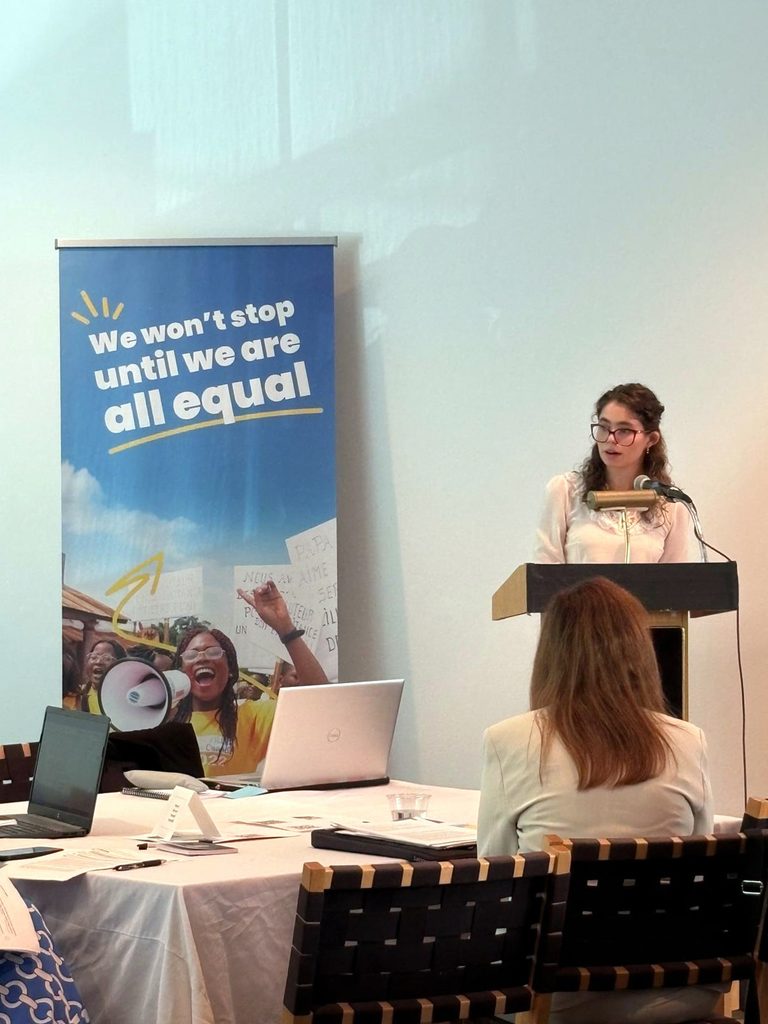The United Nations at 80
Reflecting on the future of multilateralism
18 September 2025By Sarah Rubinov, a youth advocate from the United States

The United Nations (UN) is an institution founded with lofty principles, but with a very complicated reputation. Despite the massive amounts of work that happen in and around the UN system, the average American citizen knows very little about the UN and perhaps cares even less about what they do.
Meanwhile, governments worldwide are questioning the value of the UN and restricting their contributions which continues to weaken the multilateral system. As the UN approaches its 80th anniversary and the subsequent sweeping reforms called “UN80,” the questions of the role and purpose of the UN in the modern world are more pertinent than ever.
As a student of international relations, these ongoing discussions surrounding the UN and the system of international multilateralism have been particularly relevant for me. To go from learning about the establishment of numerous international institutions and their role to watching their near collapse in the real world has been a startling reality check of the world I am growing into.
My aspirations of working in the diplomatic sector can seem increasingly futile in the face of the mounting distrust in diplomacy. It is from this perspective of a student, young woman, aspiring diplomat, and intern at Plan International that my views on the UN have taken shape.
“To go from learning about the establishment of numerous international institutions and their role to watching their near collapse in the real world has been a startling reality check of the world I am growing into.”
-Sarah Rubinov
There is no doubt, the UN system deserves much of the criticism it receives. There are more conflicts now than there were at the time of its formation, the world has become increasingly polarised and non-compromising, and human rights globally are being threatened and stripped away.
UN priorities have historically been centred around the Global North, where wealthier nation-states leverage their contributions to the UN budget to serve their own political interests. It holds no “real” or enforceable power and is dependent on Member-States to comply with decided outcomes.
The lack of binding mechanisms for outcomes means that non-compliant states face no repercussions or consequences. Additionally, the UN favours Member-States almost exclusively, making participation of other international actors very restricted. Certainly, this is a major obstacle to achieving its mandate despite continued pushes for the increased inclusion of non-state actors in UN processes and systems.
Despite the numerous criticisms of the UN, I firmly believe there is little doubt that the world would be worse without it. Regarding both diplomatic and humanitarian capacities, there is no other institution that can take its place. From a humanitarian perspective, the UN has historically provided essential services, supplies, and personnel to intervene during humanitarian crises and emergencies.
While the UN’s humanitarian interventions are not without criticism, the support UN agencies provide is essential and irreplaceable, even if on magnitude alone. Similarly, the UN has previously been successful in mediating complex conflicts in its peace and security workstream.
From a diplomatic perspective, the UN provides a unique platform for multilateral communication and negotiation, a space where various critical issues are presented with data, first-hand perspectives, and legal support.
It is perhaps the only place where representatives from countries all over the world can come together and discuss various issues on a near-equal footing. This is an essential aspect of the UN that is not to be overlooked in the face of mounting pressures and scepticism.
There is currently no other space for truly international dialogue, and bilateral meetings between heads of state or national representatives are not a sufficient replacement. These meetings lack “neutral ground,” which makes constructive conversations about sensitive topics nearly impossible.
Regional dialogues are better but geographically constrained in a way that limits broader cooperation. The contentious nature of regional divisions may also pose a challenge to constructive regional dialogues or proliferate existent regional instability.
The UN, on the other hand, provides an arena where nations can discuss on similar terms with less restrictions. Most forums also permit equal votes for all states, which further balances the scales. There is an effort to make the terms of discussion in the UN more neutral and accommodating.
Despite the various successes of the UN, or the importance of much of the work, there is a need for the UN to change and adapt to the current world. Strategies and approaches that have previously worked are no match for the complexities of contemporary conflicts, nor the increasingly politicised nature of multilateral processes.
Shifting power dynamics and geopolitical tensions are also not well-reflected by the UN, nor is the institution flexible enough to respond to rapid political handovers. Power is captured by the states that were favoured at the time of the signing of the Charter, and despite the significant changes to the world since then, little has changed in the structure of the UN to challenge these existent systems of power.
Lastly the UN is currently crumpling under the pressure of many devastating humanitarian crises, numerous interstate conflicts that challenge the role of the UN’s peacekeeping mandate, and a general isolationist retreat from funding the institution on behalf of many wealthier nation states.
The UN80 reforms could not come at a better time, as the fabric of multilateral diplomacy is coming under scrutiny by the most powerful nations in the world. Yet, we must acknowledge that the world cannot afford to lose the UN, especially not at such a critical juncture for a changing world.
Categories: Youth empowerment


